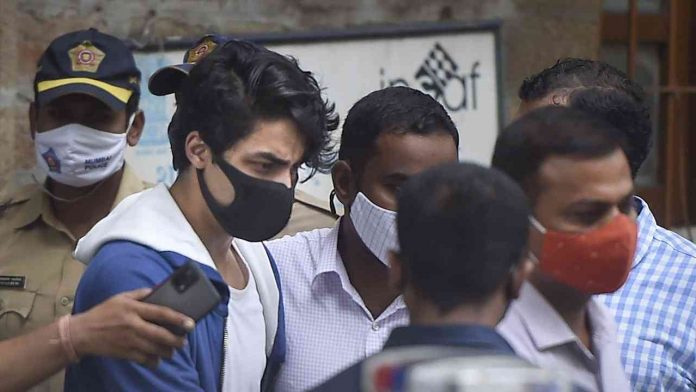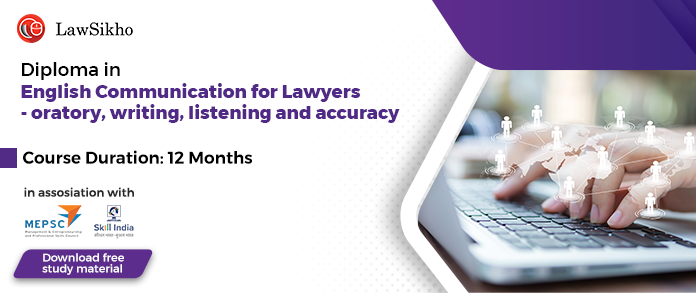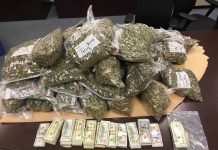This article is written by Yash Kapadia. Through this article, we shall enlist the charges against Aryan Khan and other accused, the punishment for the same and the way forward.
Table of Contents
Introduction
On the night of 2nd October 2021, the paparazzi in Mumbai came out with the news through a short video that the son of a Bollywood superstar was booked in a drug racket. Soon it was learnt through them that it was megastar Shah Rukh Khan’s son, Aryan Khan who was involved in this.
In no time, the news spread like wildfire across the country considering the national and international presence of Shah Rukh Khan, leaving behind all other important developments and mishaps that took place in the same period.
Through this article, we shall provide brief information on what is the Narcotics Control Bureau (NCB) along with its role and responsibilities, the NDPS Act, the case as told by the NCB, the charges levied against Aryan Khan, its implications, punishments involved and what to expect ahead.
What is the Narcotics Control Bureau?
The Narcotics Control Bureau (NCB) is an Indian federal law enforcement intelligence agency under the purview of the Ministry of Home Affairs, Government of India. The agency is tasked to combat the use and traffic of illegal substances under the provisions of the Narcotic Drugs and Psychotropic Substances Act, 1985.
Headquartered in the capital city of Delhi, the role of NCB is the following1:
- “Coordination of actions by various officers, State Governments and other authorities under the principal Act, the Customs Act, 1962, the Drugs and Cosmetics Act, 1940 and any other law for the time being in force in connection with the enforcement of the principal Act.
- Implementation of the obligations in respect of counter-measures against illicit traffic under various international conventions.
- Assistance to the concerned authorities in foreign countries and concerned international organizations with a view to facilitating coordination and universal action for prevention and suppression of illicit traffic in narcotic drugs and psychotropic substances.
- Coordination of actions taken by the Ministry of Health and Family Welfare, the Ministry of Welfare and other concerned Ministries,Departments or Organisations in respect of matters relating to drug abuse.”
Narcotic Drugs and Psychotropic Substances Act, 1985
The NDPS Act, 1985 aims to prohibit an individual from engaging in any sort of activity relating to production, cultivation, sale, purchase, transport, storage, and/or consumption of any narcotic drug or psychotropic substance.
A Narcotic drug as per Section 2(xiv) means “coca leaf, cannabis (hemp), opium, poppy straw and includes all manufactured drugs.”
A psychotropic substance as per Section 2 (xxiii) means “any substance, natural or synthetic, or any natural material or any salt or preparation of such substance or material included in the list of psychotropic substances specified in the Schedule”.
Charges against Aryan Khan under NDPS Act, 1985
For starters, as per the arrest memo of Aryan Khan (the accused), the arrest was made for consumption, sale and purchase of contraband punishable under the NDPS Act.2 It is pertinent to mention that the team of NCB effectively seized thirteen grams of cocaine, twenty-one grams of charas (marijuana), twenty-two pills of MDMA (ecstasy), five grams of Mephedrone (MD) and Rs 1,33,000 in cash at the International Cruise Terminal, Green gate, Mumbai Port. It was mentioned that the said arrest was made for contravention of Section 8(c) and committing offences under Section 20(b), Section 27 and Section 35 of the NDPS Act. We shall now provide the details for each of these sections.
- Section 8(c)
Section 8(c) prohibits certain activities in absolute terms. It states that the production, manufacturing, possession, selling, purchasing, transporting, warehousing, usage, consumption, importing inter-state, exporting inter-state, importing into India or exporting from India or transhipping of any sort of narcotic drug or psychotropic substance except the same is for the purpose of medical or scientific use, which requires the necessary license, permit and authorisations.
The accused, in this case, was arrested on the ground of being either in possession, purchase or consumption of charas.
- Section 20(b)
Section 20 lays down the punishment for contravention in relation to cannabis plants and cannabis. The accused in this case was booked under Section 20(b) which more particularly states that anyone who is involved in producing, purchasing, manufacturing, selling, transporting, importing inter-state or exporting or using cannabis shall be punishable for a term may extend to 10 years and liable to a fine that may extend up to one lakh rupees. However, Section 20(b)(ii)(a) states that if the contravention relates to a small quantity then the punishment would be rigorous imprisonment up to six months and a fine which may extend to ten thousand rupees. This is exactly what the accused is charged with as per the NCB.
- Section 27
Section 27 lays down the punishment in cases of consumption of any of the narcotic drugs or psychotropic substances. It is stated that where the narcotic drug or psychotropic substance consumed is either cocaine, morphine, diacetyl-morphine or any drug or substance as specified by the Central Government in this context, the punishment would be rigorous imprisonment for a period extendable up to one year or with a fine extendable up to twenty thousand rupees or both.
However, Section 27(b) states that if any other drug is consumed which is not mentioned in Section 27(1) then the punishment would be imprisonment up to six months or a fine up to ten thousand rupees or both.
The accused in this case has been charged under Section 27(b) i.e. possessing small quantities of the said drugs concerned in this matter.
- Section 28
Section 28 stated the punishment for an attempt to commit an offence mentioned under the NDPS Act. It is thereby stated that whoever attempts to commit any offence punishable under this Chapter or to cause such offence to be committed and in such an attempt does any act towards the commission of the offence shall be punishable with the punishment provided for the offence.
- Section 29
This Section states the punishment for abetment and criminal conspiracy. It is stated that whoever abets, or is a party to a criminal conspiracy to commit any offence punishable, shall, whether the offence is or be not committed in consequence of such abetment or in pursuance of such criminal conspiracy, be punishable with the punishment provided for the offence.
The accused has been alleged to have been involved in the conspiracy of selling and purchasing contraband that is punishable under the NDPS Act, 1985. However, such claims have been vehemently denied by the counsel representing the accused.
- Section 35
Section 35 states the presumption of a culpable mental state. It is presumed that the accused knew what acts they were doing. Hence, the accused will be guilty unless proven innocent. The Court shall presume the existence of such mental state but it shall be a defence for the accused to prove the fact that he had no such mental state with respect to the act charged as an offence in that prosecution.
“Culpable mental state” includes “intention, motive, knowledge of a fact, or reason to believe a fact.”
Coming back to the present case, none of the drugs seized in the case have been of “commercial quantity” as stated in the NDPS Act, but they are more than “small quantity” and all fall in the “intermediate quantity” category. The counsel for the accused has submitted that his client was not found in possession of any narcotic drug or psychotropic substance (as opposed to what was mentioned in the arrest memo) in the current case. To prove the same, the CCTV footage of the entry gate where the accused was checked thoroughly can be accessed where nothing was found on him. Secondly, the NCB officers too could say if there was any contraband recovered from the accused or not.
However, punishment for consumption of charas or cannabis carries up to 6 months imprisonment.
- Section 42
Section 42 lays the power of entry, search, seizure and arrest without warrant or authorisation. This is the section under which the NCB officials arrested the accused and seven others on the night of 2nd October 2021 and brought them under their custody immediately followed by a memo of the arrest.
Implications of these charges
The NCB through its preliminary submissions on the first day of hearing stated that they found certain incriminating messages that may lead up to busting an entire cartel. For the same reason, an order was passed to keep the accused in the custody of the NCB so that more information and leads could be gathered. However, after a period of 3-4 days, the advocate of the accused made the following submissions:
- There is nothing incriminating in the chat as the accused was called by the organisers as a VVIP having no relation to the drug racket.
- The accused is not related to any of the organisers, neither did he have an invite nor did he pay for the ticket for the cruise party.
- Chats with another accused only mention football and no drugs whatsoever.
- Even after a thorough search of the accused’s bangs and other belongings, not a single drug was found to be in his possession.
The prosecution focussed on two aspects:
- The necessity to confront the accused with some persons arrested and persons who might be arrested in future raids.
- The knowledge of the accused with regards to other people who may be involved in the drug racket as “Recovery is not what is important but it is the knowledge that counts”
The Hon’ble Esplanade Court of Mumbai passed an order remanding the accused till 7th October. The NCB then filed a remand application and the same was rejected and the accused was sent to judicial custody for a period of 14 days.
Advocate for the accused filed for bail which was challenged by the prosecution on the ground of maintainability. It was submitted that only a special court of sessions has the jurisdiction to try the case and hence hear a bail application. The jurisdiction of the Esplanade Court is within the confines of Section 36A of the NDPS Act. It is the prosecution’s case that all accused have alleged to have committed offences exclusively triable by a special court of sessions. The prosecution laid reliance on the Bombay High Court’s judgment of Rhea Chakraborty v. Union of India, 2020 in which it was held by Hon’ble Justice S. Kotwal that all offences under the NDPS Act are non-bailable and cognizable in nature.
The advocate for the accused responded to the submissions of the prosecution that the power to grant bail is inherently provided in Section 437 of the Code of Criminal Procedure, 1973 (CrPC). It was repeated and reiterated that no recoveries were made from the accused, not even one gram of any drug. Reliance was placed on the Hon’ble Bombay High Court’s judgement in Mr. Sanjay Narhar Malshe v. State Of Maharashtra, 2005 wherein it was held that there is no prohibition on the Magistrate (to hear a bail plea) because the Court is covered by CrPC and the magistrate has jurisdiction to try several offences,
The Esplanade Court rejected the submissions of the accused and thereby rejected the bail application, sending the accused to judicial custody.
The way forward
After the aforementioned rejection of the bail application, a fresh application for bail will be filed before the Sessions Court in Mumbai. However, being a weekend, there is no confirmation if there will be a special hearing or else the same would have to be filed on Monday. This means that there can either be a bail hearing at Sessions Court if it is working or else the accused would have to spend the weekend in judicial custody until a bail application is heard on Monday.
It is pertinent to note that there shall not be any questioning that can take place as the remand application by the NCB had been rejected earlier.
Conclusion
We shall be wrong in stating that the media as well as the entire nation has its eyes glued to what is happening in this case. Whether the accused is guilty or is being framed are some conjectures making the rounds. What we can be probable of is that the judiciary and the law will take their course and the guilty will be punished leaving the innocent free.
However, this particular case has concerned young adults with respect to the laws relating to the consumption, sale, purchase of various drugs. Now that departments like NCB are taking action on a frequent basis, this might be a subject that may interest budding criminal lawyers as well as law students interested in criminal law. A way to be well conversant with such issues is by keeping oneself updated by reading court orders and submissions made by advocates whilst arguing such matters.
References
- https://www.mha.gov.in/commoncontent/role-and-functions-narcotics-control-bureau
- https://www.freepressjournal.in/mumbai/i-understand-grounds-of-my-arrest-aryan-khan-after-his-arrest-in-cruise-drug-case
- https://images.assettype.com/barandbench/2021-10/9ecdc52b-cd91-481c-9558-ad754bb9bbd5/NCB_v__Aryan_Khan___Ors_.pdf
LawSikho has created a telegram group for exchanging legal knowledge, referrals, and various opportunities. You can click on this link and join:
https://t.me/joinchat/J_0YrBa4IBSHdpuTfQO_sA
Follow us on Instagram and subscribe to our YouTube channel for more amazing legal content.
 Serato DJ Crack 2025Serato DJ PRO Crack
Serato DJ Crack 2025Serato DJ PRO Crack











 Allow notifications
Allow notifications


